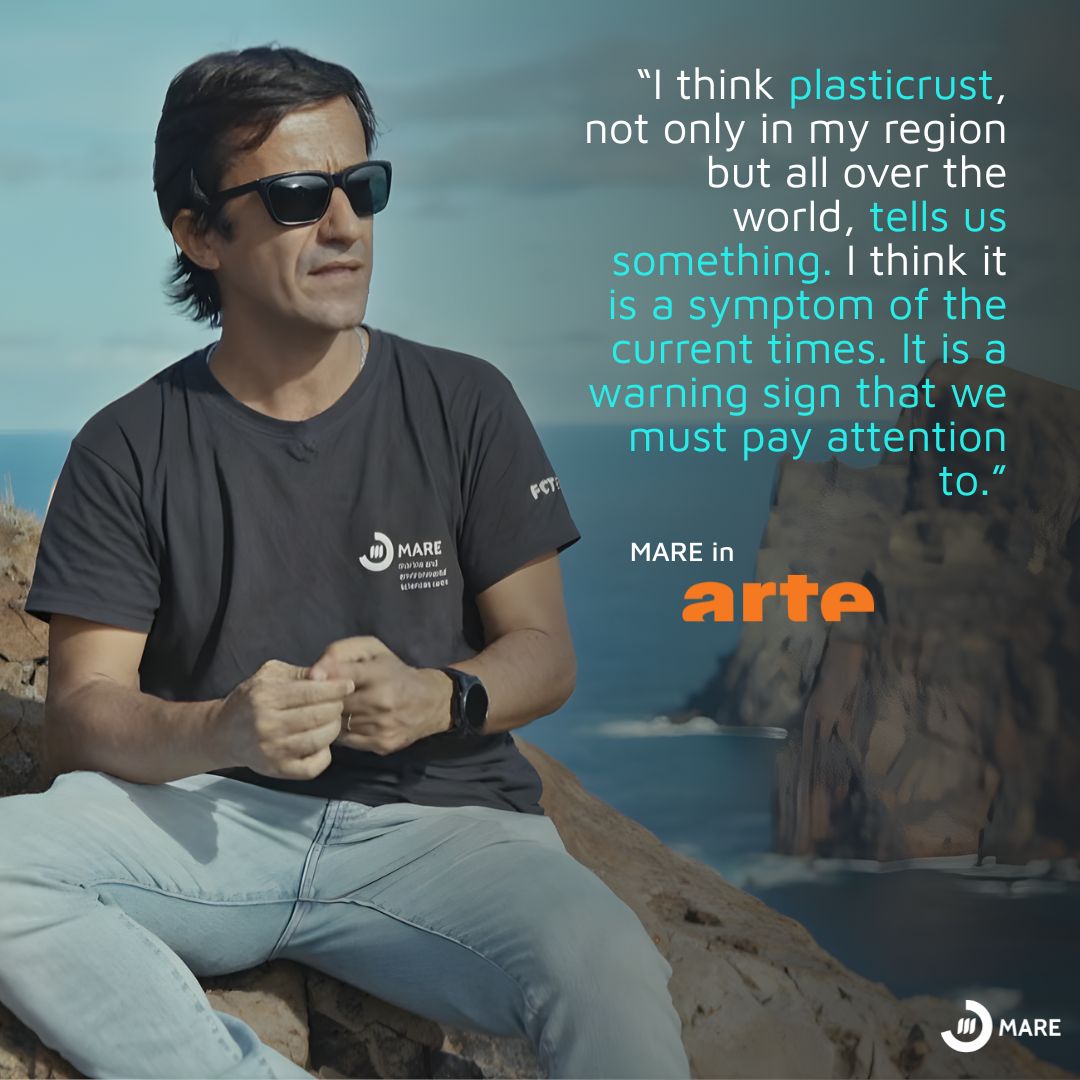João Canning-Clode featured in documentary on ARTE channel
MARE researcher João Canning-Clode participates in the documentary Terre, les forces du vivant, recently premiered on the French channel ARTE. This ambitious production explores the deep and ancient relationship between the mineral world and the living world, culminating in an urgent reflection on humanity's geological footprint in the midst of the Anthropocene era. 
In one of the most striking segments of the documentary, João Canning-Clode is invited to talk about his pioneering research into the geological phenomenon of Plasticrust: hybrid formations resulting from the fusion of plastic with rock, first identified on the island of Madeira in 2016. "I think that plasticrust, not only in my region but all over the world, tells us something. I think it is a symptom of the current era. It is a warning sign that we must be attentive to," says the researcher.
The presence of Plasticrust highlights the lasting impact of plastic on the environment. These materials, formed by a combination of the mechanical action of waves, the texture of rocks, and high temperatures, which can exceed 60ºC in summer, are no longer exclusive to the island of Madeira. They have been identified all over the world: in Japan, Brazil, Peru, and the Mediterranean, revealing the global scale of this new type of pollution.
João Canning-Clode has devoted himself in recent years to studying the evolution of this phenomenon and understanding the mechanisms that cause it. His work is now featured in a documentary that spans four billion years of Earth's geological history, revealing how plastic, a material created just over a century ago, is already rewriting the language of rocks.
Narrated by French actress Emmanuelle Béart, Terre, les forces du vivant brings together stunning images and testimonies from renowned scientists in an odyssey that begins with the formation of the Earth and ends in the uncertain present of the Anthropocene, showing how human intervention is radically altering the natural processes that have shaped the planet for millennia.
The participation of João Canning-Clode reinforces the role of MARE and Portuguese science at the forefront of global environmental research, contributing to reflection on today's challenges and the urgent need to rethink humanity's relationship with planet Earth.
Text by Patrícia Carvalho
